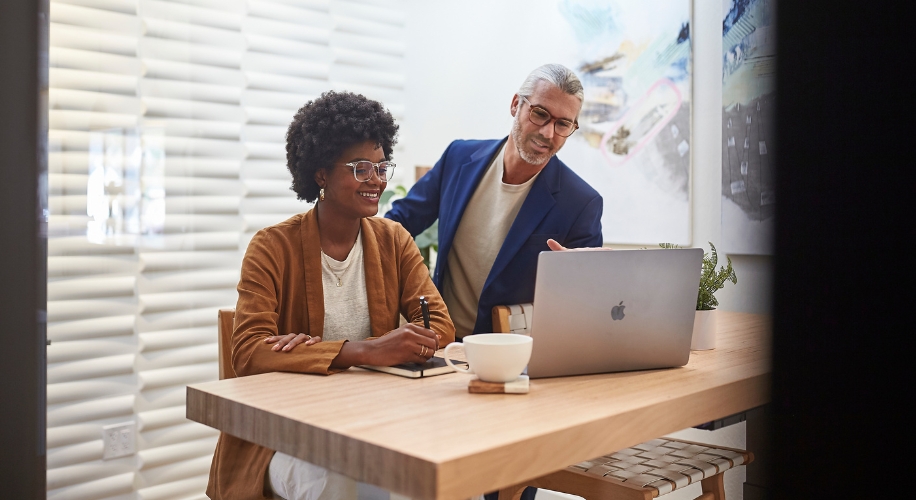Ergonomic Workspaces: Combating Eye Strain with Proper Setup
- BY Dr. Steven Liem
- IN Eye Health

As we increasingly spend more time in front of screens, it’s essential to create an ergonomic workspace that minimizes eye strain. A well-configured setup can help maintain your vision health and overall comfort during long stretches of computer use. Let’s explore some key strategies to ensure your workspace is as eye-friendly as possible.
Monitor Placement and Settings
One of the most critical aspects of an ergonomic workspace is the position of your monitor. Here are some pointers to help you adjust your screen optimally:
- Distance: Position your monitor approximately an arm’s length away. This distance helps prevent straining your eyes from focusing too hard on text or images.
- Height: The top of the screen should be at or slightly below eye level. This positioning allows your eyes to slightly look downward, reducing the exposure of the eye’s surface to the air, and potentially minimizing dryness and irritation.
- Settings: Adjust the brightness and contrast of your monitor according to the lighting in your room. This helps to avoid glare, which can cause you to squint and strain your eyes.
Furthermore, it’s worthwhile to explore the monitor’s color temperature settings. Reducing blue light exposure, particularly later in the day, can help prevent disruptions to your sleep cycle. Utilizing Blue Blokz lenses when working on your computer can also aid in filtering out blue light and increase comfort.
Ergonomic Seating and Desk Setup

An ergonomic chair and desk play significant roles in preventing eye strain. Here’s how to ensure they contribute to your visual well-being:
- Chair: Select a chair that supports your back and allows your feet to rest flat on the floor or on a footrest. When you’re comfortably seated, you are less likely to lean forward, which can cause you to be too close to your monitor.
- Desk: Ensure that your desk provides ample space and allows your arms to rest comfortably while typing. Keeping your wrists in a neutral position can prevent additional strain on your shoulders and neck, which can indirectly influence your vision due to tension and fatigue.
Enhance your workspace further with anti-glare coatings on your glasses to reduce reflections that might cause you to adopt poor posture in an attempt to see the screen better.
Lighting and Break Strategies
Appropriate lighting is key to reducing eye strain. Harsh overhead lights or insufficient lighting can cause you to strain your eyes to see your work. Aim for soft, diffused lighting that illuminates your workspace without causing a glare on the screen. If possible, position your desk near a source of natural light but be cautious of direct sunlight which can create harsh glare.
Remember to take regular breaks to rest your eyes. The 20-20-20 rule is a good guideline: every 20 minutes, look at something 20 feet away for at least 20 seconds. This short break can help your eyes relax and reduce the risk of eye strain and fatigue.

For additional support in creating an eye-friendly workspace, consider our range of eyewear with protective coatings and lens options. Regular eye exams and updating your prescription glasses are crucial steps to ensure your vision remains clear and comfortable while working at your computer. By implementing these recommendations, you can create an ergonomic workspace that supports both your eyes and your productivity.
About the Author: Dr. Steven Liem, OD, FAAO
Dr. Steven Liem, O.D., F.A.A.O. is an optometrist based in Pasadena, California. After obtaining his doctorate from UC Berkeley’s School of Optometry, he completed his residency in Pediatrics, Vision Therapy & Rehabilitation and became a Fellow of the American Academy of Optometry. When he isn’t busy streaming or making Youtube videos about video games, Dr. Liem aims to broaden accessibility to vision health through his involvement in optometric industry and tech.